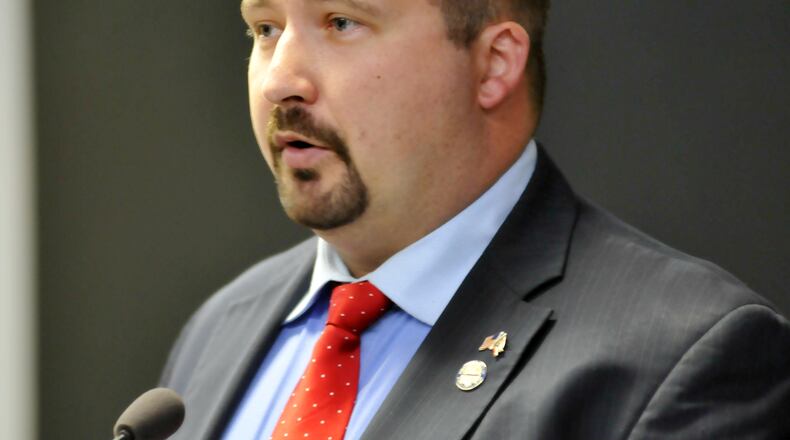INITIAL REPORT: Retherford says bill will prevent ‘re-victimizing’ of crime victims
These pieces of evidence were protected throughout a court case, including the appeals process, until the Ohio Supreme Court ruled in Caster vs. Columbus. In a split decision, the court said these pieces of investigative evidence could be released once the initial court case concludes.
House Bill 451 would prevent that. The House's Government Accountability and Oversight Committee voted 11-0 on Tuesday to move the bill out of committee on for a full vote by the House. Retherford, R-Hamilton, believes it could be up for a floor vote next week.
“With the vote (on Tuesday), we are one step closer to ensuring victims of sexual violence are not subject to being re-victimized,” he said.
The bill is supported by the Ohio Prosecuting Attorneys Association, and the Ohio Alliance to End Sexual Violence.
“Our members do occasionally receive public records requests for the types of records described in your bill,” wrote Steve Hall, assistant executive director for the Ohio Prosecuting Attorneys Association, to Retherford earlier this month.
“Many prosecutors have expressed to us that they make every effort to deny such requests. Others feel that there is currently no authority to do so. All agree that it would be very beneficial to have a clearly stated exclusion.”
While the Ohio Public Records Law provides transparency “critical to a functioning free society,” Camille Crary, director of legal services and policy with the Ohio Alliance to End Sexual Violence, said, “this loophole infringes on the rights and privacy interest of any person who happens to end up the victim of a sex crime.”
However, the bill is not supported by all. Dennis Hetzel, president and executive director with the Ohio News Media Association, said this bill “is not an easy one to oppose” because no one wants graphic content such as photos or videos released that could be used to re-victimize crime victims.
But there's nothing in state law — even after the Caster decision — that says this would happen, and it has never occurred "to anyone's knowledge," Hetzel said in his testimony to the Government Accountability and Oversight Committee.
“Requesting records and receiving records are two different things. This is why there is no documented case of an offender receiving graphic photos after a case is closed,” Hetzel said.
“If such a request were made, it would be denied, and it would be upheld based on factors such as past Ohio Supreme Court decisions on the rights to privacy and the ‘catch-all’ exemption in our open records law that keeps material exempt if it is made secret by other portions of state and federal law.”
Retherford said the bill allows the legislature to be “proactive” to a possible situation “instead of being reactive to a scenario that could happen.”
About the Author
